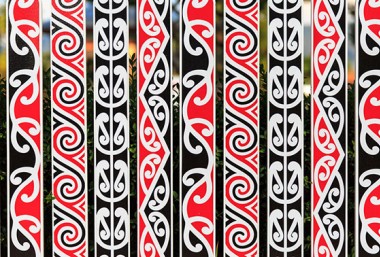After 20 years, the Waitangi Tribunal released its report on the WAI 262 claim on 2 July 2011. Lynell Tuffery Huria looks at the report from a branding perspective.
The report attempts to reconcile Māori intellectual property rights with the predominately European-influenced intellectual property system in New Zealand. As a result, the Tribunal makes several recommendations for recognising Māori intellectual property rights in mātauranga Māori (Māori knowledge).
These recommendations are divided into sections that comment specifically on taonga (mātauranga Māori-inspired) works, intellectual property, genetic and biological resources of taonga species.
We examine the recommendations that focus on the use of taonga works here, because these recommendations propose changes to our trademarks legislation.
Taonga works
The report makes a distinction between mātauranga Māori, taonga works, and taonga derived works.
Mātauranga Māori is loosely described as "Māori knowledge".
Taonga works are works that are an expression of mātauranga Māori (Māori knowledge) that invoke ancestral connections.
Taonga derived works are works that derive their inspiration from mātauranga Māori, but do not have an ancestral connection.
These works include weaving, music, waiata (song), haka (war dance), and the Māori language itself.
Claimant's arguments
The claimants argued the Crown has an obligation to protect and did not protect:
taonga works, taonga derived works, and mātauranga Māori from misuse and misappropriation
taonga works or the kaitiaki (guardian) relationship between Māori and taonga works.
The claimants sought control and full authority over mātauranga Māori.
Tribunal's decision
The Tribunal did not grant full authority or control over mātauranga Māori. Instead, the tribunal recommended the Crown introduce a regime where:
- anyone can raise a general objection to derogatory or offensive use of taonga works, taonga derived works, and mātauranga Māori
- kaitiaki can raise an objection to any commercial use of a taonga work or mātauranga Māori until consultation, and if necessary, consent is obtained from kaitiaki.
New commission to be established
The report recommends the Trade Mark Advisory Committee (established under the Trade Marks Act 2002) be replaced with a new Commission with responsibility to:
- hear objections on whether use of a taonga work, taonga
- derived work, or mātauranga Māori is offensive or derogatory
- hear kaitiaki objections that a taonga work is being
- commercially used without consultation or consent
- make decisions on whether a work is a taonga work
- identify kaitiaki
- keep a register of taonga works and kaitiaki
- develop and produce guidelines and best practices for the use, care, protection, and custody of taonga works.
One of the major changes is that the new Commission's decisions will be binding. Under the current regime, the Advisory Committee's recommendations are not binding.
Current trademark rights
The report states it will be difficult to retrospectively remove any existing trademarks rights, and suggests these should only be removed or stopped if they are considered derogatory or offensive.
Where to from here?
These recommendations are non-binding. The government will consider which aspects of the report to adopt, and then we can expect further legislation to amend our trademarks legislation.
